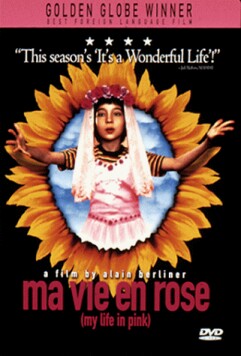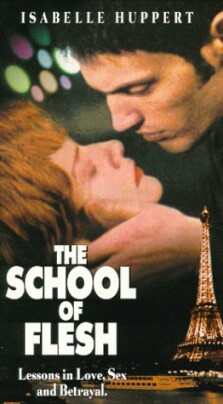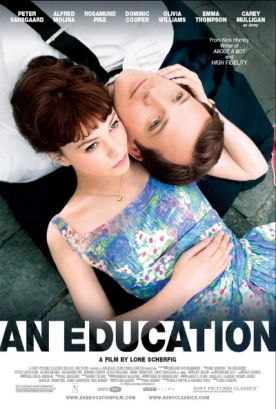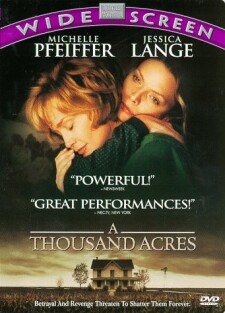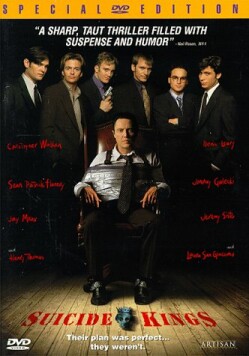Ma Vie en Rose (My Life in Pink)
Ma Vie en Rose by Alain Berliner manages to be a charming film, rather
in the manner of the upbeat and jokey postmodernism of Berliner’s fellow
Belgian, Jaco Van Dormael. Enjoyable as it is in many ways, however, one can
never quite lose the sense of being got at by—that rare thing—a
perfectly amiable propagandist for the “gender” agenda of feminists and
homosexuals. It tells the story of seven year-old Ludovic (Georges Du Fresne), a
boy who wants to be a girl. Ludovic surreptitiously dresses up as a girl and
even contracts a pretend marriage with a neighbor boy who is also the son of his
father’s boss. His horrified parents try to put a stop to such games, but little
Ludo keeps insisting:
“I’m
going to marry him when I’m not a
boy.”
The film’s great virtue is that the parents, Hanna (Michèle Laroque)
and Pierre (Jean-Philippe Ecoffey), are not the monsters they would doubtless
have been in heavier hands but ordinary decent folk who are frightened and
bewildered by Ludo’s obsession without loving him any less. True, the
persecution of his neighbors and schoolmates is exaggerated for effect, but the
main focus is placed on the unity of the family in the face of society’s
opposition. That helps to create a more accessibly human situation to engage the
audience’s sympathies—instead, that is, of just relying on the elevation
to the heroic of the incipient transsexual at the expense of everybody else. In
the end the sense of family ties somehow holding together against a cruel
conspiracy of nature and society creates an oddly conservative effect.
But it has to be said that it also cops out at last by using its po mo
whimsicality to skirt round the serious issue of sexual identity that it raises.
What should the parents—or, indeed, society—do in such a
case? Do you try to suppress the boy’s sense of himself as a
garçon-fille or “girlboy” or do you cater to it and start talking
to a child about sex-change operations? At one point, Ludo’s très
sympa granny (Hélène Vincent) says to him,
“We must face
reality.” Her own reality is her age,
but she can’t face it anymore than Ludo can face his. She herself recognizes
this, and so proceeds to instruct him in something else you can do with reality
besides facing it: you close your eyes and
“pretend the world is how you want it
to be.”
That is essentially what the film itself does. Ludo’s fantasy world is that
of Pam, a bosomy, Frenchified Barbie-doll who presides over his favorite TV show
and seems to come to life for him, transporting him to her colorful TV-land
whenever the real world becomes too much for him. And it is Pam who has the last
word in the film, sprinkling her fairy dust over an ambiguously upbeat
conclusion in which it appears that Ludo may at last be left in peace to play
dress-up without being harassed for it. As Mike Myers’s Wayne would say, “Hey,
it could happen.” As for Ludo’s doubtful post-pubertal fate, there is obviously
no need to worry about such things in Pam’s world.
Discover more from James Bowman
Subscribe to get the latest posts to your email.

